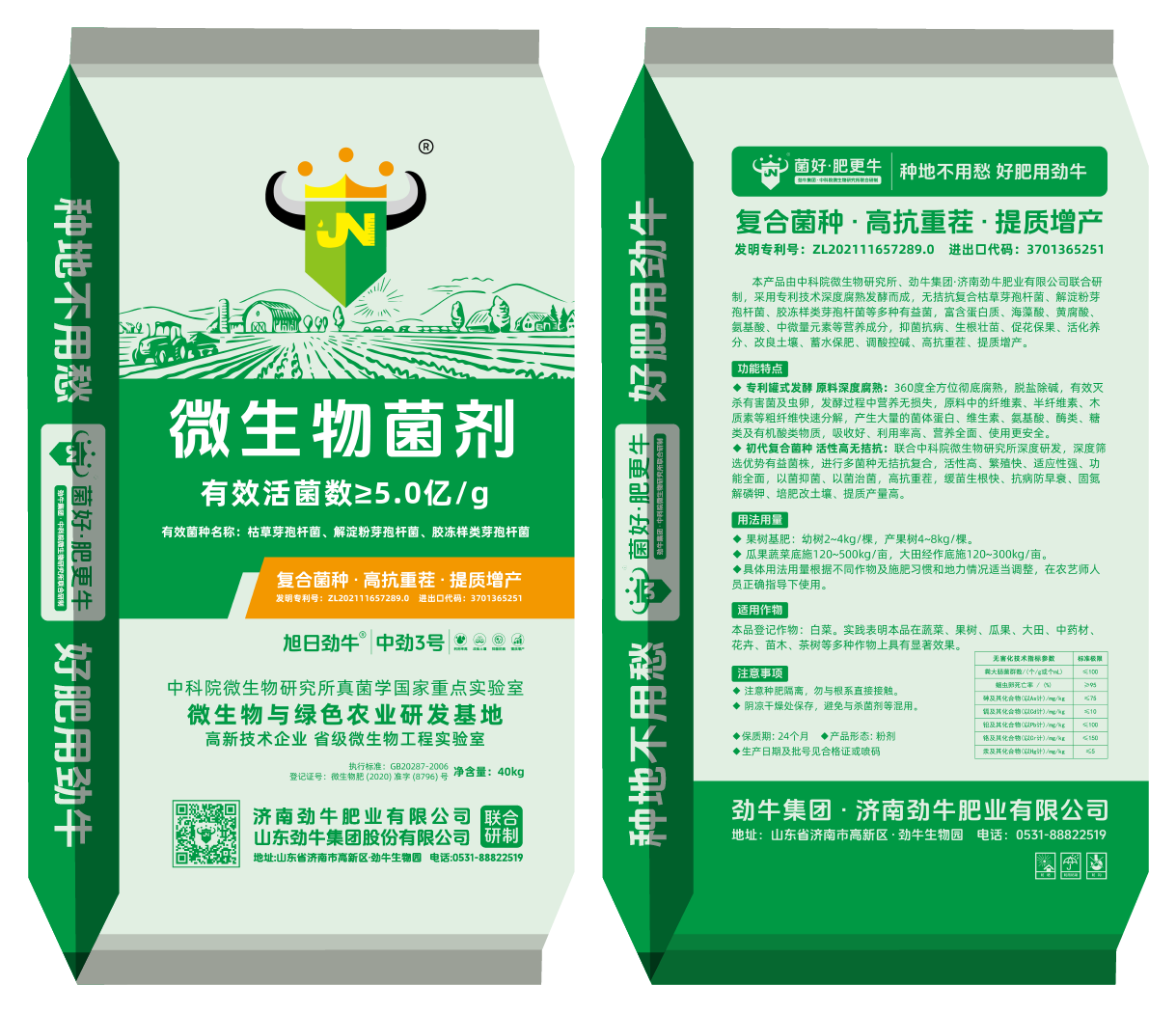Composite strains·High resistance to repeated cropping·Improvement of quality and yield
Invention patent number: ZL202111657289.0 Import and export code: 3701365251
This product is jointly developed by Shandong Jinniu Group Co., Ltd. and Jinan Jinniu Fertilizer Co., Ltd. It is made by deep decomposition and fermentation using patented technology. It contains no antagonistic compound Bacillus subtilis, Bacillus amyloliquefaciens, jelly-like Paenibacillus, etc. kind Beneficial bacteria are rich in protein, alginic acid, fulvic acid, amino acids, medium and trace elements and other nutrients. They inhibit bacteria and resist diseases, root and strengthen seedlings, promote flowers and fruits, activate nutrients, improve soil, store water and fertilizer, and regulate acidity. Alkali control, high resistance to repeated cropping, quality improvement and yield increase.
【Features】
◆Patented tank fermentation raw materials are deeply decomposed: 360-degree all-round decomposition, desalination and alkali removal, effective killing of harmful bacteria and insect eggs, no loss of nutrients during the fermentation process, cellulose, hemicellulose, lignin and other coarse substances in the raw materials Fiber decomposes rapidly, producing a large amount of bacterial proteins, vitamins, amino acids, enzymes, sugars and organic acids, which are well absorbed, highly utilized, comprehensive in nutrition, and safer to use.
◆The first-generation compound bacterial strain has high activity and no antagonism: In-depth research and development in conjunction with the Institute of Microbiology, Chinese Academy of Sciences, in-depth screening of advantageous and beneficial strains, and multi-strain non-antagonistic compounding. It has high activity, fast reproduction, strong adaptability, and comprehensive functions. It is bacteriostatic, Treat bacteria with bacteria, have high resistance to repeated cropping, slow seedlings to take root quickly, resist diseases and prevent premature aging, fix nitrogen, phosphorus and potassium, cultivate fertilizer and improve soil, improve quality and produce high yields.
【Usage and Dosage】
◆Basic fertilizer for fruit trees: 2~4kg/tree for young trees and 4~8kg/tree for fruit-producing trees.
◆For fruits and vegetables, apply 120~500kg/mu, and for large fields, apply 120~300kg/mu.
◆The specific usage and dosage should be adjusted appropriately according to different crops, fertilization habits and soil conditions, and should be used under the correct guidance of agronomists.

